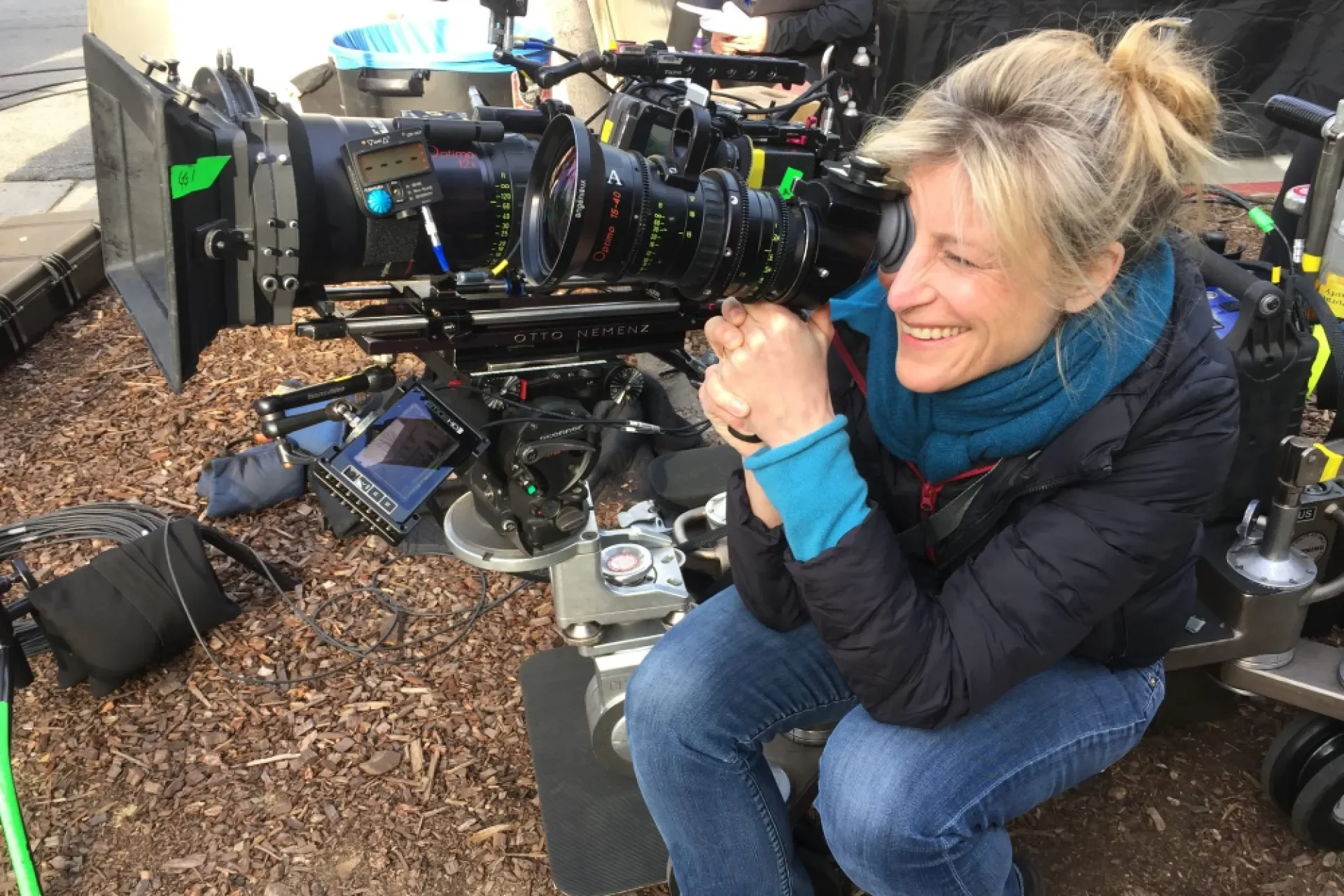SPOTLIGHT ON: BTS PANELIST TESSA BLAKE
Director Tessa Blake’s journey from indie filmmaker to powerhouse television director is not only inspiring but also a testament to persistence, storytelling, and the slow—but real—shift toward equity in Hollywood. With credits ranging from American Horror Story to Station 19 and 9-1-1, and a career that began with a deeply personal documentary, Blake has carved a space for herself in a field that, for many years, rarely welcomed women behind the camera.
From Indie Beginnings to International Film Festivals
Tessa Blake’s filmmaking roots go back to the early 2000s. Her first major project, Five Wives, Three Secretaries and Me, premiered at SXSW and later aired on Showtime and Oxygen. This personal documentary, exploring her complex relationship with her father, earned accolades from the Academy of Motion Picture Arts and Sciences and kicked off a creative career defined by rich storytelling and visual ambition.
Her early shorts also found festival success. Leave Keys in Car, a comedy filmed in Hawaii, picked up Best Comedy at the Lady Filmmaker Festival, while her drama Upended, starring Amy Landecker, premiered at AFI in 2023. Each film built upon her distinct voice and visual style—ambitious, emotional, and often reflective of untold or underrepresented experiences.
A Prolific Voice in Episodic Television
While her documentary and indie film work laid the foundation, it’s in episodic television where Blake has truly flourished. Her directing credits span a wide variety of genre and tone: Veronica Mars, iZombie, Charmed, NCIS: New Orleans, and A Million Little Things. Though she’s often attached to female-driven narratives, Blake says she’s ultimately drawn to compelling characters, no matter their background.
Her episode of Charmed, “The Truth About Kat and Dogs,” stands out as a visual experiment in memory and consciousness. Collaborating with showrunners Liz Kruger and Craig Shapiro, and cinematographer Joe Gallagher, Blake created a surreal dreamscape that was both emotional and cinematic. “As long as that stuff is rooted in what the story wants,” she explained, “I love having a lot of visual ambition.”
Navigating Hollywood Before and After #MeToo
The road to success, however, wasn’t always smooth. After her early documentary success, Blake was met with resistance when she expressed interest in directing television. “They all looked me up and down and said, ‘No, that’s not going to work for you,’” she recalled. At the time, she took this rejection personally. But years later, she came to understand the structural and cultural biases that had kept her—and many others—on the sidelines.
Post-#MeToo, Blake has seen those structures begin to change. Television, in particular, has opened doors. “The place you get to direct a lot is television,” she says, emphasizing how the opportunity to consistently work helps directors build their craft. While progress is ongoing, she’s hopeful. “I’ve been very impressed with my industry over the last year or so. I feel grateful to be working in it.”
Giving Back and Lifting Others
Today, Blake isn't just focused on her own career—she’s working to change the industry from within. As a graduate of the AFI Directing Workshop for Women (DWW), she later became the Nancy Malone Director of Inclusion Initiatives at AFI. In this role, she helps support the next generation of underrepresented directors through mentorship and opportunity.
Blake’s belief is clear: talent is out there—it just needs a chance to be seen. Whether through AFI, her own series on female espionage in WWII, or her work in documentaries highlighting prison reentry (Susan, Project ALS), Blake remains committed to stories that matter and voices that need to be heard.
Final Thoughts
In an industry still reckoning with its past, Tessa Blake stands as a creative force committed not just to great storytelling but to reshaping the space in which stories are told. “You have to be good,” she advises. “Be prolific, keep learning, and surround yourself with peers who push you to be better.” It’s this grounded wisdom, paired with remarkable talent, that makes her work—and her career—so essential to today’s film and television landscape.
Want to see how Tessa puts her advice into action? Join us at back to set where Tessa will lead real-time department head meetings in THE PRODUCTION MEETING, LIVE on Saturday at 2:30pm!
Don’t miss out - buy your tickets today!

